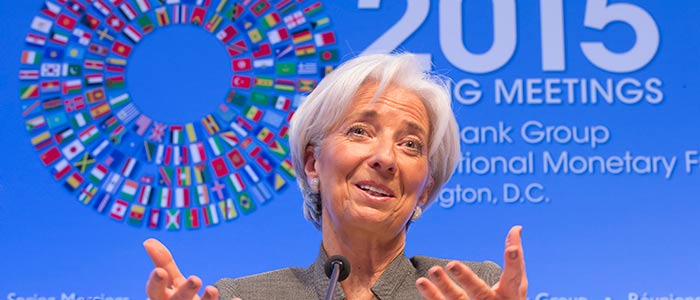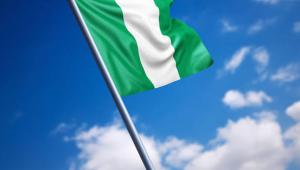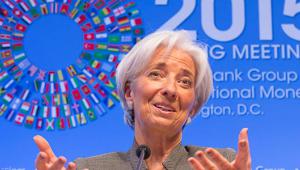WEb_IMF_ChristineLagarde_17169021875_5ac675797e_o.jpg

Christine Lagarde. Credit: IMF Staff Photo/Stephen Jaffe
In a speech to the Nigerian National Assembly, the IMF’s Christine Lagarde commended the African country for its economic and democratic progress but said its government will need to make some fundamental fiscal changes to respond to the external challenges its economy faces.
Lagarde first visited Africa as managing director in 2011, when Nigeria was emerging from the 2008-9 commodity price collapse and ensuing banking crisis. Since then, she noted that the country had risen to become the largest economy on the continent and its political system had matured.
But at the same time, she said, the external environment has changed. “Oil prices have fallen sharply; global financial conditions have tightened; growth in emerging economies has slowed; and geopolitical tensions have increased.”
She said the high commodity prices and capital flows that had driven growth in sub-Saharan Africa for more than a decade are far less supportive, and the former will be lower for longer.
To add, economies the world over are being impacted by China’s move to a new growth model and increasing divergence in monetary policy in major economies, especially since the recent rise in US interest rates.
This creates “spillovers”, she said, such as the lower oil prices which have already sharply reduced Nigeria’s export earnings and government revenues at a time when the country is facing an “urgent need to address a massive infrastructure deficit and high levels of poverty and inequality”.
In contrast to Nigeria’s significant growth of around 7% a year over the last decade, in 2015 the country saw its slowest pace of growth since 1999, which, for a country with a rapidly increasing population, means almost no real economic growth in per capita terms.
Reduced confidence, lower capital spending and the threat of terrorism are also likely to compound the poor conditions, she said.
Lagarde said while the country’s previous achievements were “remarkable” and a “testament to Nigeria’s immense potential”, policymakers will have to stay resilient and make some “hard decisions” on revenue, expenditure, debt and investment.
She recommended the country’s policymakers “act with resolve” by stepping up revenue mobilisation. She said the country should broaden its tax base and reduce leakages.
Nigeria should also look into ways of bolstering public finances, for example by increasing VAT rates which are currently among the lowest in the world.
She also suggested the country “build resilience” by making careful decisions on borrowing. While the country has a relatively low public debt it weighs heavily on the public purse, she said.
Finally Nigeria should exercise spending restraint and “focus on the quality and efficiency of every naira spent” and ensure that tax increases produce improvements in public service delivery.
She also said that the country should improve its external position and work towards inclusive and sustainable growth by investments and improvements in energy and transport infrastructure, fostering a sound banking system and fighting corruption.













